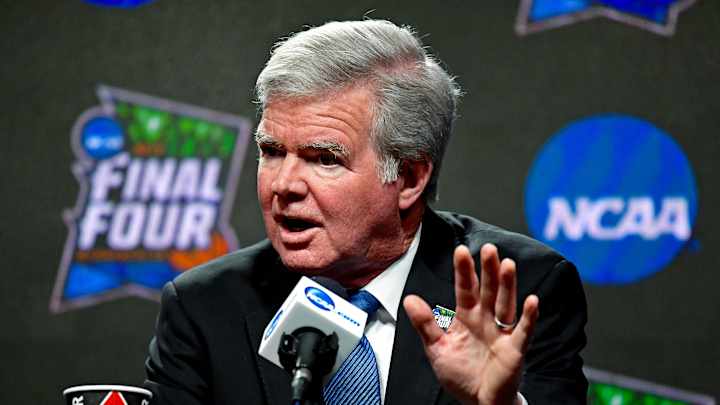Cal Athletics: It's Time For the NCAA to Check the Calendar - It's the 21st Century

The man behind the curtain shouting loudest about the virtues of amateurism in college sports got a 60 percent raise in 2017 and earned $3.9 million last year.
Mark Emmert, president of the NCAA and proponent for keeping college sports in the 1950s, while talking to the Indianapolis Star this week called California’s new SB206 law — known as the Fair Pay for Play Act — “just a new form of professionalism.”
Let’s clear this up right now: Big-time collegiate sports ceased being an amateur endeavor decades ago. Emmett’s salary is just the tip of professional iceberg.
There are those in university administration who are cringing at the notion that college athletes will soon be able to earn money based on selling the rights to their names, images and likenesses to outside bidders.
"(They may be) paid in a fashion different than a paycheck (from the school)," Emmert said. "But that doesn't make them not paid.”
That’s right. The whole idea is that they do get paid.
Emmert expressed opposition to what he called “unfettered endorsement deals,” saying the NCAA is not opposed to finding “an appropriate way” to provide athletes with compensation.”
Appropriate to whom?
Folks, these aren't intramurals.
If you want to treat NCAA sports that way, let’s starting paying coaches the salaries that university intramural directors earn.
In the state of Alabama, the average salary for that position at a college is a bit more than $45,000 per year, according to salary.com.
Alabama football coach Nick Saban took home $8.3 million in 2018. That’s about 184 times what the intramural guy gets.
The average full professor on Saban’s campus at Tuscaloosa earned $145,000 in 2017, according to Chronicle Data. That prof would need to lecture for 57 years to take home what Saban gets in a year.
I’m not picking on Saban — his program may be the most profitable venture in the entire state. But that’s just the point — it’s a business. Twelve other FBS coaches made at least $5 million in 2018, according to USA Today.
Kentucky basketball coach John Calipari made nearly $9.3 million in 2018-19, followed closely by Duke’s Mike Krzyzewski at $7 million. A total of 21 Division I coaches earned $3 million last season.
Collegiate sports are a perfect example of capitalism in America. It doesn’t matter that a school teacher or a speech therapist or a firefighter provides a much more important service to mankind than a guy who teaches large young men how to tackle. If a coach can win games and fill the stadium, the university opens its wallet wide.
Everybody makes a buck in this equation, including trainers and team doctors and TV announcers and even sports writers, although many of us could just as well be intramural directors.
Because this is the way it’s always been done, athletes get their scholarship check but are not permitted to accept a $10 sandwich from a booster. Much less take $1,000 from a local businessman who wants to display his picture at his store.
At the heart of this is a simple question: Who decided that earning money is an evil thing?
Everyone needs to get on board, because this is happening. Colorado, Florida, Illinois, Kentucky, Minnesota, Nevada, New York, Pennsylvania, South Carolina and Washington all either have bills pending or are engaging in serious discussions on the topic.
A Republican congressman from Ohio — former Ohio State football player Anthony Gonzales — has plans to propose a national law that would allow college athletes to earn endorsement money.
The California law doesn’t go into effect until Jan. 1, 2023, so there is plenty of time to sort out the details. No doubt, this is complicated. But it won’t kill Olympic sports or women’s programs. And it probably won’t even apply to most athletes.
But Fair Pay for Play is just what it sounds like — a fair approach to what has been a somewhat one-sided arrangement.
If Mark Emmert really wants to hold onto that outdated amateur ideal, we’re guessing there’s an intramural job open somewhere in Alabama.

Jeff Faraudo was a sports writer for Bay Area daily newspapers since he was 17 years old, and was the Oakland Tribune's Cal beat writer for 24 years. He covered eight Final Fours, four NBA Finals and four Summer Olympics.